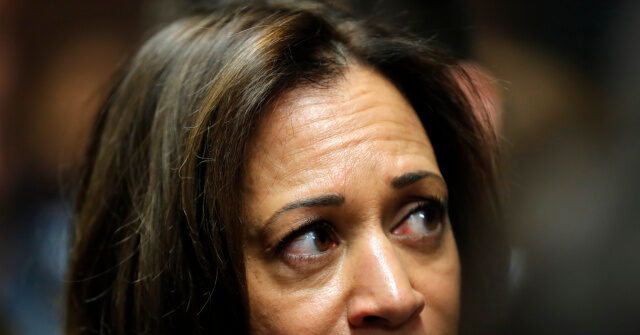During a recent interview on Fox News Channel’s “Special Report,” Vice President Kamala Harris addressed a question regarding her stance on the use of taxpayer money for gender transition surgeries for federal prisoners and detained migrants. As a candidate in the 2024 Democratic presidential race, Harris emphasized her intention to adhere to the law, drawing a parallel between her position and that of her Republican opponent, former President Donald Trump. She pointed out that during Trump’s presidency, such surgeries were permitted under specific medical necessity guidelines for individuals within the federal prison system. Harris criticized Trump for attempting to instill fear among the electorate regarding these surgeries, claiming that the topic is largely disconnected from the primary concerns facing most Americans.
Host Bret Baier questioned Harris about her continued support for taxpayer-funded gender transition surgeries, prompting her to reiterate that her actions would be compliant with existing laws. Harris highlighted that these mandates were actually followed during the Trump administration. She refrained from directly confirming or denying support for the surgeries but maintained that the law was clear and needed to be upheld. This response indicates Harris’s intent to distance herself from the political panic that may surround the issue while asserting a constitutional responsibility to provide necessary medical care.
Baier countered Harris’s claims by stating that Trump’s aides alleged that no gender transition surgeries occurred during his presidency, posing a challenge to her assertion of his adherence to the guidelines. In response, Harris interjected to assert that Trump needed to take responsibility for his administration’s actions, emphasizing that her comments were anchored in the legal precedent they both operated under. This exchange illustrates the complicated interplay of accountability and legal interpretations that both candidates must navigate during their campaigns.
Despite Baier’s assertions about the lack of surgeries during Trump’s presidency, Harris maintained her refusal to engage in a direct debate about specific funding policies for gender reassignment surgeries. Instead, she reiterated her commitment to following the law. Harris suggested that the focus of the Trump campaign was misplaced, using significant funds to bombard voters with fear-based advertisements rather than addressing pressing domestic issues. She emphasized a clear difference in focus, asserting that while Trump spent $20 million on ads about gender transition surgeries, the matters truly affecting the American populace are far more urgent.
Harris’s comments reveal her strategy of framing the discussion on gender transition surgeries not as a central campaign issue but rather as a legal obligation, thus diffusing the contention surrounding it. By calling attention to Trump’s past administration while drawing a contrast with her priorities, she seeks to portray herself as a candidate grounded in law and order, as well as compassion for those who may require medical procedures. Additionally, by labeling Trump’s campaign strategy as fearmongering, Harris attempts to position her candidacy as more attuned to the needs and concerns of ordinary Americans.
Ultimately, this exchange highlights the ongoing discourse surrounding healthcare, legality, and social issues within the context of a presidential campaign. Harris’s nuanced approach aims to deflect criticism while reinforcing her commitment to legally required medical services, presenting her as a responsible candidate who operates within the framework of the law. At the same time, the dialogue underscores the complexities of campaign messaging and the challenges candidates face when addressing contentious social issues during an election season, particularly as they seek to resonate with a diverse electorate.

